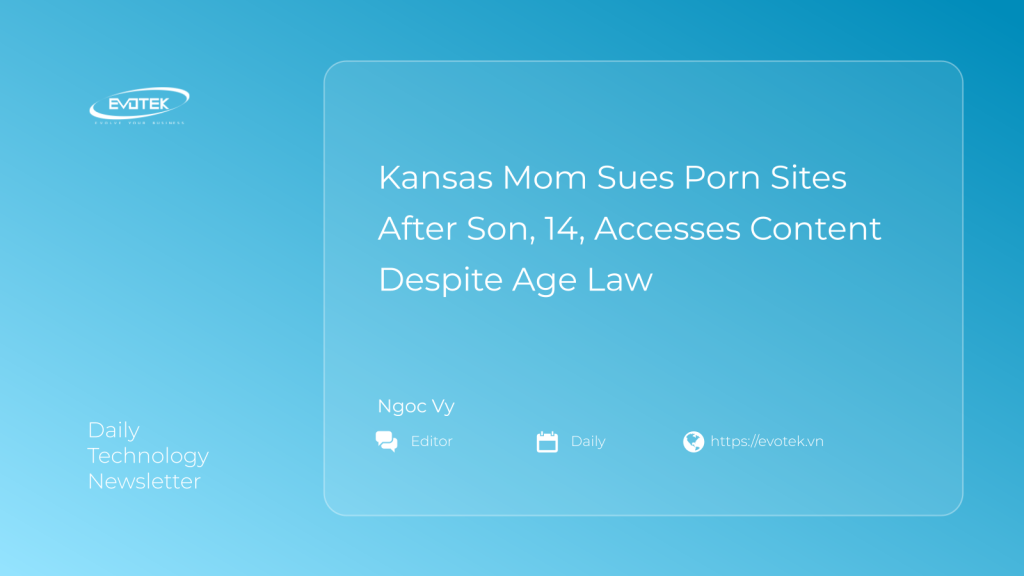An Olathe, Kansas mother is taking legal action against four adult websites – Jerkmate, Chaturbate, Superporn, and Hentaicity – after her 14-year-old son allegedly accessed their content. The lawsuit claims the sites failed to comply with Kansas’s age verification law, enacted in 2024.
This legal challenge arrives as the U.S. Supreme Court deliberates on the constitutionality of similar age verification laws, specifically regarding a Texas policy. The outcome of that case could significantly impact the future of online age verification regulations in Kansas and numerous other states.
The Kansas law mandates that websites with over 25% of content deemed “harmful to minors” must implement measures to verify users are at least 18 years old. The lawsuit alleges the teen, identified as “Q.R.,” accessed the sites 185 times over two months using an old laptop.
The complaint states, “Unfortunately for Q.R., it was still in working condition. Q.R., using his mother’s old laptop, had unfettered access to the internet and began searching for pornography.”
The lawsuit argues that the companies violated Kansas’ age verification and consumer protection laws, potentially leading to substantial damages per violation. The National Center on Sexual Exploitation (NCOSE), a Washington, D.C.-based nonprofit, is co-counsel in the case.
Benjamin Bull, General Counsel for NCOSE, expressed hope that this lawsuit will inspire similar challenges across the nation. He highlighted the need to address the “extreme” nature of online content accessible to children.
While concerns exist about potential addiction and harmful behaviors linked to teen porn use, research findings remain mixed. A 2022 U.S. survey revealed that over 70% of teens reported online exposure to pornography, with a majority experiencing it by age 12.
Critics, including the Free Speech Coalition, argue that age verification laws pose privacy risks, requiring users to submit government IDs. They fear potential data breaches despite regulations prohibiting data retention.
However, proponents like Bull believe these laws represent the best available solution to protect children while safeguarding individual rights.
This case unfolds against the backdrop of Kansas Attorney General Kris Kobach’s January lawsuit against SARJ, LLC, under the same age verification policy. SARJ, LLC responded, claiming non-liability as a foreign corporation.
As legal battles escalate and the Supreme Court weighs in, the future of online age verification remains uncertain. This Kansas case highlights the ongoing debate surrounding online safety, privacy, and the protection of minors.
Tags: Age Verification, Kansas Law, Pornography, Online Safety, Child Protection, Internet Censorship

 日本語
日本語 한국어
한국어 Tiếng Việt
Tiếng Việt 简体中文
简体中文